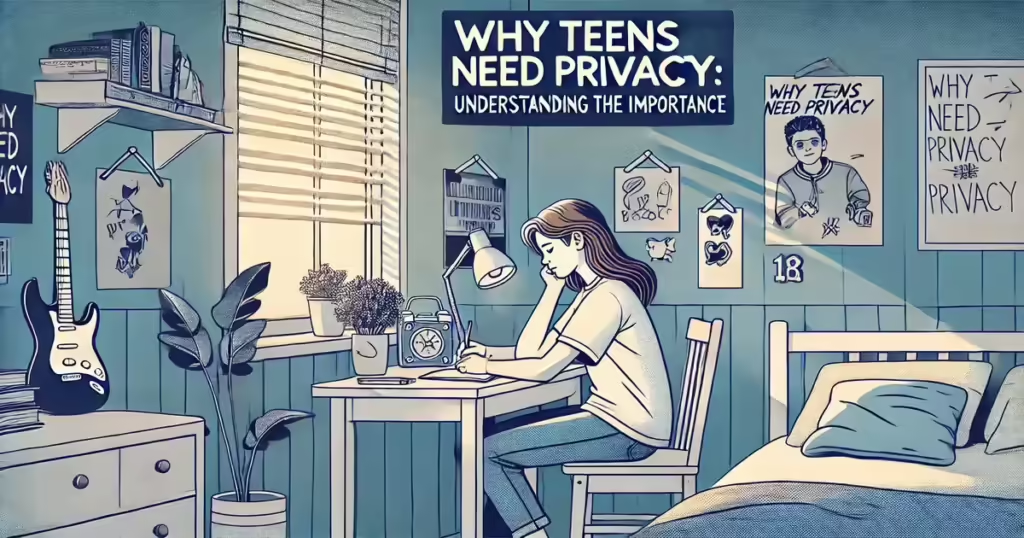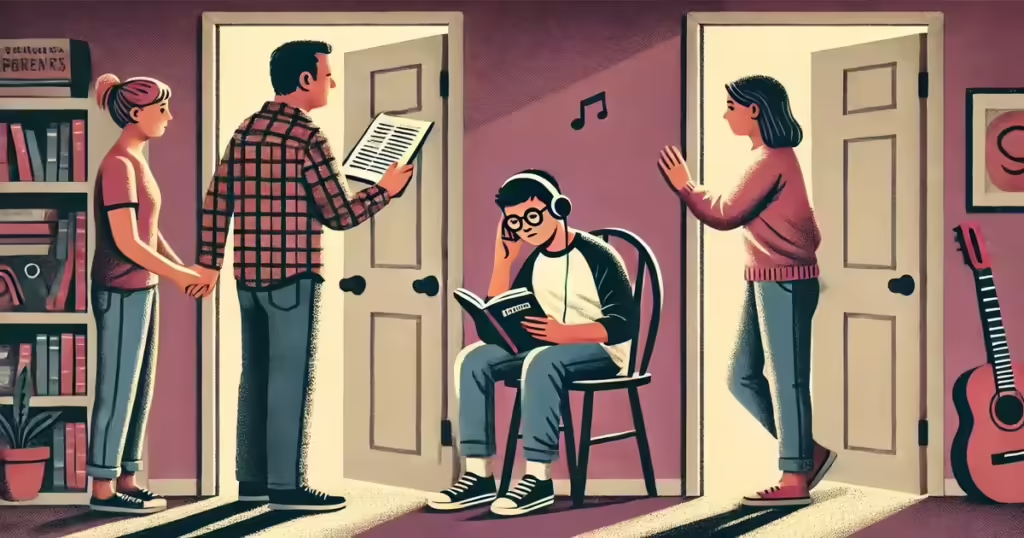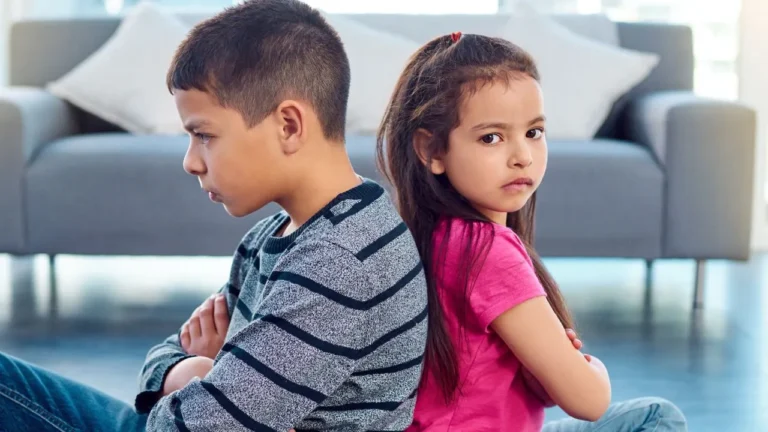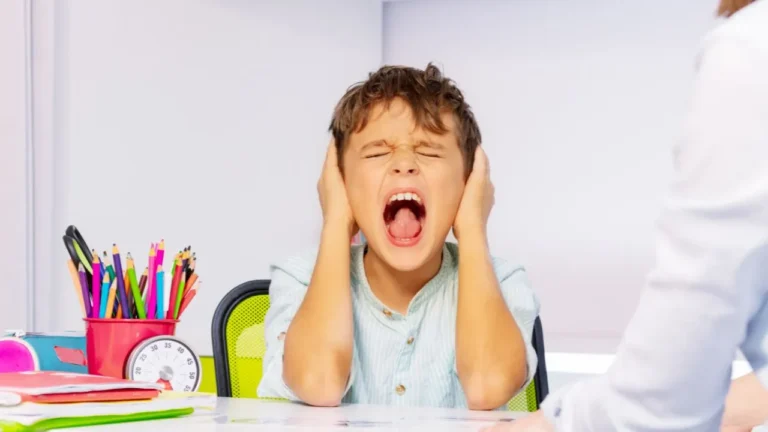Why Teens Need Privacy: Understanding the Importance

The teenage years are a time of immense change and growth, marked by a burgeoning desire for independence and self-discovery. As teenagers navigate this complex period, a fundamental need emerges: the need for privacy. Why Teens Need Privacy?
Parents naturally strive to protect their children. However, they must find a balance between providing guidance and respecting a teenager’s need for autonomy. This delicate balance is essential for fostering healthy development, building trust, and nurturing responsible decision-making skills in young adults.
why do teenagers need privacy
The quest for privacy often becomes a point of contention between teenagers and their parents. Teenagers, on the verge of adulthood, crave the freedom to explore their identities. They want to experiment with different personas and establish their values and beliefs.
Privacy provides the essential space for this exploration, allowing them to process thoughts and emotions without feeling judged or pressured. On the other hand, parents are driven by love and concern. They may struggle to relinquish control. They fear the potential pitfalls that come with increased independence.
It’s important to remember that respecting a teenager’s need for privacy isn’t about giving them free rein without boundaries. It’s about recognizing their evolving need for autonomy. It also involves providing a safe and supportive environment. In such an environment, they can learn, grow, and develop into healthy, well-rounded individuals.
Open communication, clear expectations, and mutual respect are the cornerstones of this delicate balance.

Developmental Needs: Why Privacy is Crucial for Teens
Adolescence is a period of profound identity formation. Teenagers grapple with “Who am I?” and “Who do I want to be?”. This exploration often involves trying different hats, experimenting with various interests, and testing different social groups.
Privacy is paramount during this process. It provides a safe space for self-reflection. Teenagers can process their experiences. They can experiment without fear of judgment. They also solidify their sense of self.
Constantly being monitored or lacking personal space can harm a teenager’s development. It can hinder their ability to self-reflect, leading to feelings of insecurity and low self-esteem.
Moreover, it can create a sense of distrust and resentment, damaging the parent-child relationship. Just like a seed needs space to germinate and grow, teenagers need privacy to blossom into their full potential.
Teenagers need the ability to retreat to a private space. It could be their bedroom, a favorite spot in nature, or the quiet of their thoughts. This is essential for their well-being. It allows them to process emotions.
They can make sense of their experiences. This retreat helps develop a healthy sense of self. This process is crucial for their emotional well-being and their ability to form healthy relationships in the future.
Respecting Boundaries: Why Teens Need Privacy to Build Trust
Trust and Respect: The Foundation of Healthy Parent-Teen Relationships
Respecting Boundaries: Why Teens Need Privacy to Build Trust
Respecting a teenager’s need for privacy is not merely about physical space. It’s also about respecting their emotional and psychological boundaries. This includes:
While these actions might stem from good intentions, they can be incredibly invasive and damaging to the parent-child relationship. Understanding why teens need privacy in this context is crucial for building trust.
When teenagers feel trusted, they are more likely to reciprocate that trust. Conversely, constant intrusion can breed resentment and lead to secretive behavior.
Dr. Jennifer Powell-Lunder, a clinical psychologist, states, “Respecting a teen’s privacy shows that you value them as individuals. It also indicates that you trust their judgment.
Why do teens need privacy? This foundation of trust and respect is crucial. It helps in navigating the challenges of adolescence. It also aids in building a strong, healthy parent-teen relationship.”

Responsible Decision-Making: Learning Through Experience and Privacy
Learning from Mistakes: Why Teens Need Privacy to Make Responsible Choices
Part of growing up is learning to make independent decisions – and sometimes, that includes making mistakes. Privacy provides a safe space for teenagers to experiment. They can make choices within reason. They learn from the natural consequences of those choices.
Parents often feel tempted to shield their teenagers from all potential harm. However, intervening constantly can stop teenagers from developing essential decision-making skills.
Part of growing up is learning to make independent decisions – and sometimes, that includes making mistakes. Privacy provides a safe space for teenagers to experiment. They can make choices (within reason) and learn from the natural consequences of those choices.
Allowing teenagers to experience the natural consequences of their actions is important. This should be done within a supportive and safe environment. It is crucial for their development.
Parental guidance and support remain crucial during these formative years. However, it’s important to strike a balance between offering guidance and allowing teenagers to learn through experience.
Parents provide them with the space to make their own decisions. Teenagers learn from their mistakes. They experience the natural consequences of their actions. Through this process, parents equip their teenagers with the tools they need to become responsible, independent adults.
Digital Privacy
The digital age presents unique challenges and considerations when it comes to teen privacy. Social media, online gaming, and constant connectivity blur the lines between public and private life. It’s more important than ever to establish clear boundaries and expectations regarding online behavior.
Parents understandably want to monitor their teenagers’ online activity. They aim to protect them from potential dangers. However, it is important to monitor them respectfully and with open communication. Spying on their every move can damage trust and create an adversarial dynamic.
Instead, focus on open dialogue about online safety, responsible digital citizenship, and the potential risks of oversharing.
Teenagers need privacy in the digital world just as much as they do in the offline world. Respecting their digital space fosters a sense of trust. Providing guidance and setting clear boundaries encourages responsible online behavior.
Earning Privacy Through Responsibility
Determining the right balance of privacy and freedom for your teenager hinges on their level of responsibility. Consider how they manage their daily responsibilities. Are they punctual for school? Are they diligent with homework? Do they respect curfews? Are they proactive with chores?
If your teen manages these tasks independently, it might be time to ease up on the reins a bit. There should be a clear connection between the responsibility your teen demonstrates. Their positive behavior and honesty should also be linked to the amount of privacy they are granted.
If your teen breaches your trust, reducing their privacy temporarily can be a fitting consequence. The same applies if they fail to meet expectations. Ideally, family rules and privacy expectations should be established and communicated before any issues arise. Teens must understand the potential consequences of breaking these rules.
However, when mistakes happen, it’s important not to view them as failures. Dr. Lamson advises, “Consider these situations as chances for growth.” Avoid punishment or shame. Instead, focus on rebuilding trust. Help your teen develop the skills needed to make better decisions in the future.
Online Privacy with Guidance
A teen’s need for privacy extends to their online activities. It’s equally important to provide mentorship and guidance in this area. Teach them about safe and appropriate online behavior. Ensure they understand the potential long-term impacts of their digital actions.
Dr. Lamson advises against snooping on your teen’s texts or social media posts without a compelling reason. Trust, like other privileges, should be earned. Once they’ve demonstrated trustworthiness, it’s only fair to respect their online privacy. This respect allows them the space to mature. It helps them become more independent.
If you have concerns, it’s better to initiate a conversation rather than covertly monitoring their online activity. “If something feels wrong, have a discussion with your child instead of secretly checking their phone or computer,” suggests Dr. Lamson. This approach fosters open communication and trust, essential elements in navigating the complexities of adolescence.

When It’s Appropriate to Step In
While granting your teen privacy is important, there are times when closer monitoring is necessary. If you overhear conversations about dating violence, it’s time to intervene. See them upset over something on social media, it’s time to intervene. Find a vape in their laundry, it’s time to intervene.
As a parent, your primary responsibility is to ensure your child’s safety. These scenarios are red flags indicating potential harm in their lives—issues they may not always voice.
However, it’s crucial not to invade their privacy over minor incidents, such as disagreements with friends. Reserve your more intensive monitoring for when there are significant changes in your teen’s behavior. Look for signs of distress if they’re not opening up to you.
Dr. Lamson points out that warning signs can include symptoms of depression. They may also show through sleep disturbances, unexplained injuries, or withdrawal from activities they once enjoyed. These warning signs also encompass social isolation or indications of substance abuse. When these signs appear, it’s essential to take action.
Responding to Red Flags
Balancing privacy and safety is key to supporting your teen’s development. Insufficient oversight can leave teens vulnerable, while excessive monitoring can signal a lack of trust, impeding their growth toward independence.
If you notice troubling changes in your teen’s behavior, begin with an open conversation about what you’ve observed. This is advised by Dr. Lamson. Ask about their withdrawal from activities they used to enjoy or why they’re avoiding close friends. Then, listen attentively to their responses.
Should your teen react with anger, indifference, or a lack of clarity, consider professional counseling. Immediate action is crucial if your teen expresses suicidal thoughts or sentiments that life isn’t worth living. In such cases, bypass snooping and seek medical assistance without delay.
Conclusion
The delicate balance between parental guidance and respecting a teenager’s need for privacy is a continuous journey. It requires open communication and mutual respect. Parents also need a deep understanding of the developmental needs of adolescents.
Privacy is not merely about physical space. It’s about recognizing a teenager’s burgeoning autonomy. It values their right to explore their identity. It acknowledges their need to learn and grow through experience.
Parents can empower their teenagers to develop into healthy, confident, and responsible adults. They can achieve this by fostering a home environment that values open communication. It should respect boundaries. Additionally, it should provide a safe space for exploration and self-discovery.






